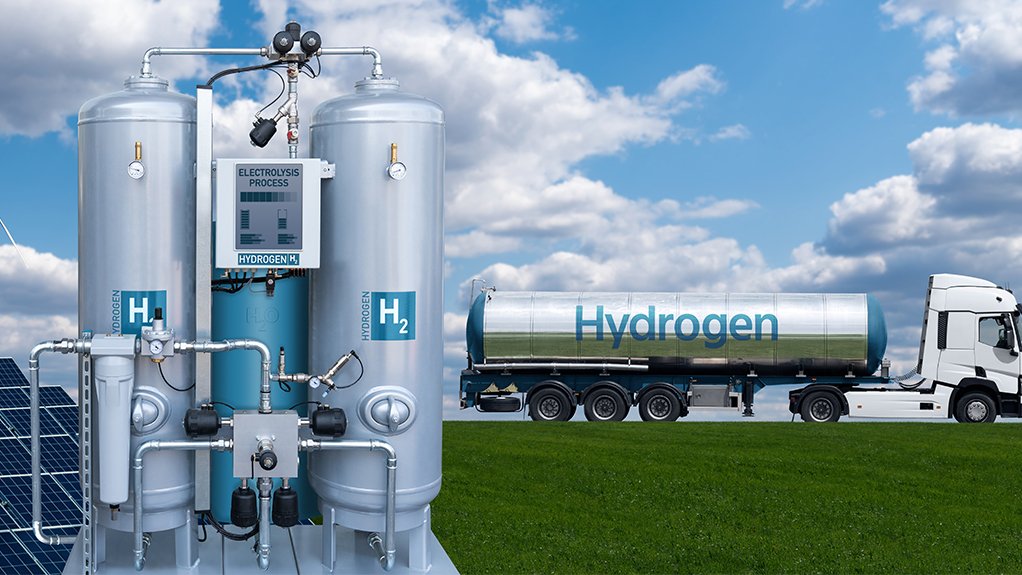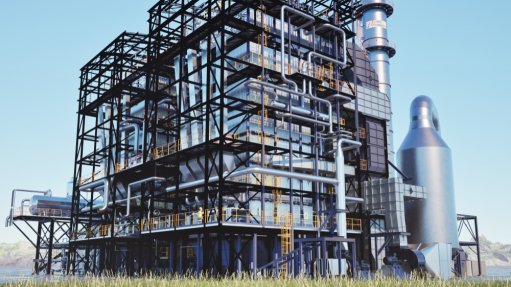Green hydrogen to positively impact sector



POWERING JOB CREATION The jobs created through the growth and development of the local renewable-energy sector, including green hydrogen, will surpass job losses associated with the Fourth Industrial Revolution
VIREN SOOKHUN While the development of South Africa’s green hydrogen economy will result in workforces being sourced from host communities, the country will, inevitably, have to import skills
The development of a green hydrogen economy will impact positively on South Africa’s labour landscape as the country continues to adapt to the Fourth Industrial Revolution (4IR) while, consequently, certain jobs will become redundant, says recruitment agency Oxyon People Solutions MD Viren Sookhun.
Although job losses are a reality when repetitive tasks are automated through digital transformation, Sookhun forecasts that the jobs created through the growth and development of the local renewable-energy sector, including green hydrogen, will surpass 4IR job losses, cancelling out the impact on employment locally.
“The net difference will be positive, especially considering green hydrogen. However, we currently do not have all the skills in South Africa to really grow a green hydrogen economy.”
Sookhun tells Engineering News that South Africa can easily redeploy people who are working in its liquefied natural gas (LNG) sector and repurpose their skills to grow a green hydrogen economy.
“Some reskilling is required, but not much. In most cases, we can easily transition people from the LNG sector to green hydrogen.”
South Africa predominantly produces blue and grey hydrogen, with green hydrogen pilot projects under way.
Global chemicals and energy company Sasol and national oil company of South Africa PetroSA use hydrogen to produce synthetic fuels and chemicals, with the country producing 2.4-million tons of grey hydrogen yearly for domestic consumption, said President Cyril Ramaphosa at the South Africa Green Hydrogen Summit, in Cape Town, in November last year.
At the time, 19 green hydrogen projects were identified for development, nine of which were formally registered with Infrastructure South Africa, an initiative of the Public Works and Infrastructure Ministry and The Presidency, aimed at meeting National Development Plan infrastructure targets.
South Africa is taking some steps towards building a healthy green hydrogen economy, but Sookhun says the pace is too slow.
While Germany has launched a fleet of 14 hydrogen-powered trains, South Africa is still planning how to develop a hydrogen valley, which will start near Mokopane, in Limpopo, and extend through the industrial and commercial corridor to Johannesburg, in Gauteng and, finally, Durban, in KwaZulu-Natal.
To accelerate the development of a local green hydrogen economy, he emphasises the need for greater collaboration between the private sector and government.
“The Department of Science and Innovation (DSI) is pushing for the development of a green hydrogen economy, having published the Hydrogen Valley Feasibility Study in collaboration with platinum producer Anglo American Platinum, clean energy solutions provider Bambili Energy and French multinational utility company ENGIE.
“The hydrogen valley supports the DSI’s Hydrogen Society Roadmap for South Africa 2021. But, there aren’t enough private companies coming on board, nor are there associations being created to promote and drive the development of the green hydrogen economy and supply chain at a much faster pace.”
Sookhun says policy uncertainty is to blame for the lack of private-sector participation.
“There are no incentives from government to attract green hydrogen investments. The current policies favour LNG and liquefied petroleum gas and have yet to be amended, indicating a lack of urgency to examine regulations and create a business environment that attracts green hydrogen funding.”
Realistic Job Creation Goal?
Sookhun believes that, with the correct drivers in place to accelerate the development of a local green hydrogen economy, the South African Hydrogen Valley corridor can definitely create 14000 to 30 000 direct and indirect jobs by 2030.
“Many ancillary services are mentioned in the roadmap that could realise job creation targets,” which he says vary from the manufacturing of electrolysers and other necessary equipment, and the construction of green hydrogen production facilities, which require renewable-energy sources, to distribution networks and transport and logistics.
But South Africa needs significant investment from foreign or local private companies and the public sector to catalyse growth. Significant effort needs to be made by an industry association to attract investment, in addition to driving skills development and policy reviews, for example, Sookhun reiterates.
As the global leader in green hydrogen at present, Germany is a “perfect example” of how a green hydrogen economy can aid job creation through the development of various use cases.
Article Enquiry
Email Article
Save Article
Feedback
To advertise email advertising@creamermedia.co.za or click here
Press Office
Announcements
What's On
Subscribe to improve your user experience...
Option 1 (equivalent of R125 a month):
Receive a weekly copy of Creamer Media's Engineering News & Mining Weekly magazine
(print copy for those in South Africa and e-magazine for those outside of South Africa)
Receive daily email newsletters
Access to full search results
Access archive of magazine back copies
Access to Projects in Progress
Access to ONE Research Report of your choice in PDF format
Option 2 (equivalent of R375 a month):
All benefits from Option 1
PLUS
Access to Creamer Media's Research Channel Africa for ALL Research Reports, in PDF format, on various industrial and mining sectors
including Electricity; Water; Energy Transition; Hydrogen; Roads, Rail and Ports; Coal; Gold; Platinum; Battery Metals; etc.
Already a subscriber?
Forgotten your password?
Receive weekly copy of Creamer Media's Engineering News & Mining Weekly magazine (print copy for those in South Africa and e-magazine for those outside of South Africa)
➕
Recieve daily email newsletters
➕
Access to full search results
➕
Access archive of magazine back copies
➕
Access to Projects in Progress
➕
Access to ONE Research Report of your choice in PDF format
RESEARCH CHANNEL AFRICA
R4500 (equivalent of R375 a month)
SUBSCRIBEAll benefits from Option 1
➕
Access to Creamer Media's Research Channel Africa for ALL Research Reports on various industrial and mining sectors, in PDF format, including on:
Electricity
➕
Water
➕
Energy Transition
➕
Hydrogen
➕
Roads, Rail and Ports
➕
Coal
➕
Gold
➕
Platinum
➕
Battery Metals
➕
etc.
Receive all benefits from Option 1 or Option 2 delivered to numerous people at your company
➕
Multiple User names and Passwords for simultaneous log-ins
➕
Intranet integration access to all in your organisation




















